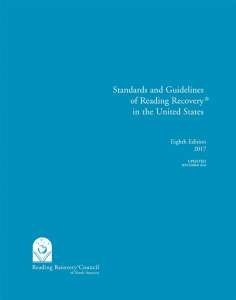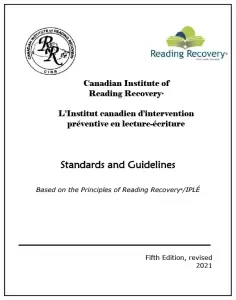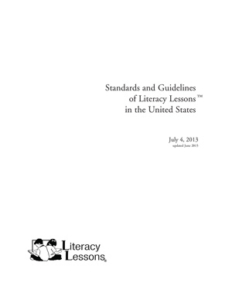Implementation Standards Ensure Uniform Quality
All countries involved in Reading Recovery have a set of implementation standards to protect the quality of the intervention in relation to teaching children, training and professional development for teachers, and system implementation.
There are currently three different Standards & Guidelines documents governing Reading Recovery in North America
 |
United States Reading Recovery and DLL. Approved by the North American Trainers Group, the 8th edition of Standards and Guidelines of Reading Recovery in the United States includes new, additional standards that govern the use of technology in training Reading Recovery teachers and teacher leaders. The inclusion of technology standards is intended to ensure that those using technology are fully prepared to provide high-quality professional development in a virtual environment. |
 |
Canada Reading Recovery and IPLE. In Canada, the Canadian Institute of Reading Recovery (CIRR) is responsible for maintaining the Reading Recovery Standards and Guidelines. The standards and guidelines outline how Reading Recovery is to be implemented and are to be followed by all implementations of Reading Recovery and IPLÉ in Canada. The CIRR Board of Directors updates the standards and guidelines as needed. |
 |
Literacy Lessons Standards & Guidelines. This document presents standards and guidelines for implementing Literacy Lessons. Implementations in English and in Spanish are collaborative efforts between Reading Recovery/Descubriendo la Lectura university training centers and Reading Recovery/Descubriendo la Lectura teacher leaders. It is intended that Literacy Lessons will only be implemented in schools that include Reading Recovery as an early literacy intervention. |
 |
Literacy Lessons Standards & Guidelines in Canada are owned by the Canadian Institute of Reading Recovery (CIRR). The CIRR monitors the trademark requirements and issues authorization to use the Literacy Lesson trademark to Reading Recovery institutes and sites in compliance with these standards. |
There are additional resources to assist in fully implementing a quality Reading Recovery experience in your school community.
THE JOURNAL OF READING RECOVERY
Spring 2024
Constructing a More Complex Neural Network for Working on Written Language That Learns to Extend Itself by Carol A. Lyons
Reading Recovery IS the Science(s) of Reading and the Art of Teaching by Debra Semm Rich
Predictions of Progress: Charting, Adjusting, and Shaping Individual Lessons by Janice Van Dyke and Melissa Wilde
Teachers Designing for Context: Using Integrity Principles to Design Early Literacy Support in Aotearoa New Zealand by Rebecca Jesson, Judy Aitken, and Yu Liu

